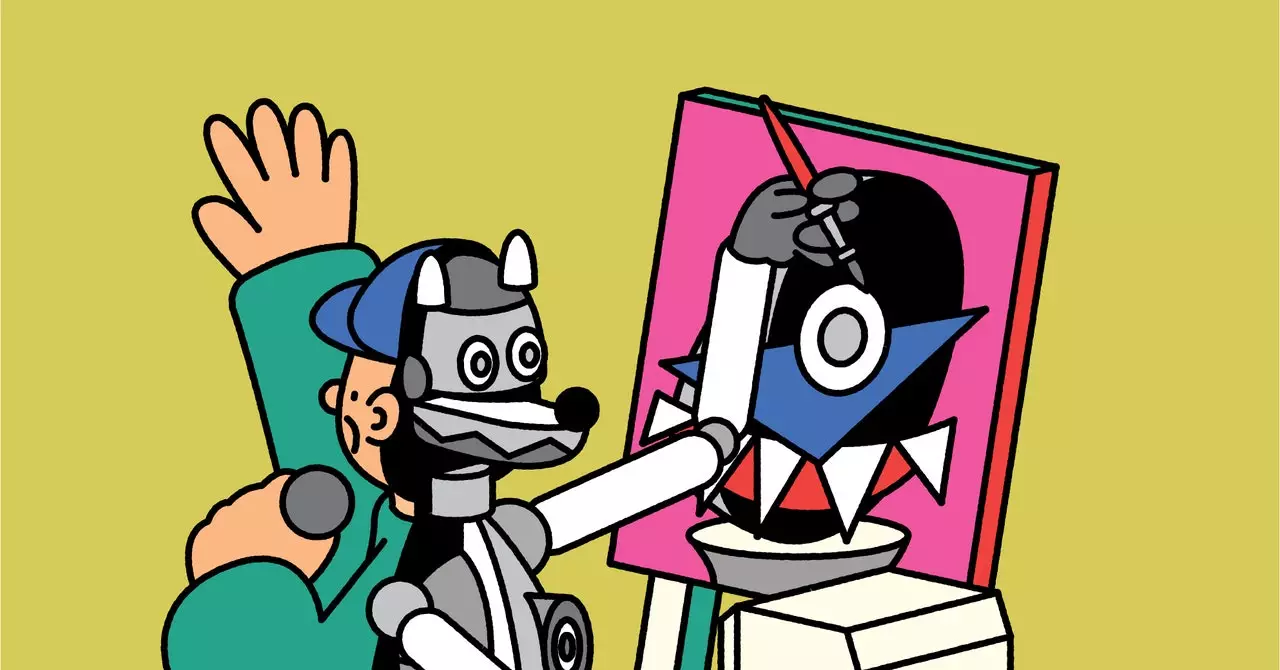The emergence of advanced artificial intelligence, particularly large language models like ChatGPT, stirred a wave of anxieties regarding their impact on the creative industries. Critics argue that these technologies threaten to diminish the human components essential to art and creativity, replacing the nuanced processes that artists engage with in their work. As we approach 2025, it is essential to reevaluate this perspective, particularly through the lens of hip-hop culture, which serves as an illuminating case study in the interaction between human creativity and artificial intelligence. The intricate dance of technological advancement alongside artistic expression presents both challenges and opportunities for the evolution of culture.
Hip-hop, recognized as one of the most influential and commercially successful genres in music history, is uniquely positioned to reflect the changing dynamics brought on by AI. The genre has already witnessed instances of AI’s involvement in music production and lyrical creation, leading to viral sensations that blur the lines between human and machine creativity. One notable case was the AI-generated track titled “One Shot,” which, during a public feud between artists Drake and Kendrick Lamar, was mistakenly believed to be an authentic Lamar creation. This incident exemplifies the profound capacity of AI to generate content that resonates with audiences, raising questions about authenticity in an era where the line between human and machine-made art continues to blur.
As we step into 2025, we can expect an even more pronounced presence of AI-generated music, primarily fueled by social media dynamics where provocative content garners immediate traction. This scenario poses both a risk of saturation in content quality and an opportunity for new artistic expression. The interplay between human and AI creativity suggests an era ripe for experimentation, where artists can leverage technology to push boundaries and redefine music.
In navigating these new terrains, artists may adopt various strategies to engage with AI, redefining their roles within the creative process. One potential approach is what could be termed “full surrender,” where musicians embrace the potential of AI to produce vast amounts of music. This shift does not necessarily devalue the human contribution but rather repositions it within the context of curation and contextualization. Just as DJs curate tracks to craft unique auditory experiences, new job roles may arise that focus on the interpretation and presentation of AI-generated music, leading to a flourishing market for critics and cultural commentators who evaluate this new wave of creativity.
Another emerging strategy may involve the subtle integration of AI as a collaborative partner, where artists leverage technology to enhance their creative outputs rather than replace them. The humorous reinterpretation of hip-hop classics, like AI-infused country renditions, exemplifies this hybrid model. As artists like 50 Cent express appreciation for AI’s role in such innovative explorations, the potential for new subgenres and styles emerges—illustrating how technological advancements can foster imaginative re-engagement with traditional forms. This collaboration between humans and AI generates a diverse musical landscape, where artists not only experiment with AI-driven compositions but also explore the new realms of sound that arise from these interactions.
As the proliferation of AI-generated content accelerates, a remarkable irony will likely surface: a heightened appreciation for traditional human-made art forms. Just as retro movements have rehabilitated once-dismissed technologies, the sheer volume of AI creations will lend greater significance to the original works produced by human hands. This renewed focus on the foundations of hip-hop may catalyze a burgeoning industry dedicated to preserving and celebrating its roots, elevating foundational artists and their contributions to the art form.
Moreover, this transformative period in the music landscape may foster an enduring respect for hip-hop as a legitimate cultural expression deserving of recognition in prestigious spaces, including institutions like the Rock & Roll Hall of Fame. A concerted recognition of hip-hop’s cultural significance will occur as society grapples with the implications of AI in creative domains, ultimately placing the genre on a pedestal alongside other established art forms.
As we contemplate the complexities surrounding AI’s relationship with creativity moving into 2025, we face a pivotal moment that could redefine artistic expression and cultural appreciation. While the anxieties of job displacement and diminished human impact are legitimate, looking at hip-hop reveals a landscape teeming with fresh possibilities. The symbiotic relationship between artistry and technology may yield unprecedented innovations and collaborations, allowing human creativity to flourish even amidst the rise of AI. Thus, as we venture into this uncharted territory, one is left to ponder whether the future holds a renaissance in artistic expression, where human ingenuity is augmented, not replaced, by the powerful capabilities of artificial intelligence.

